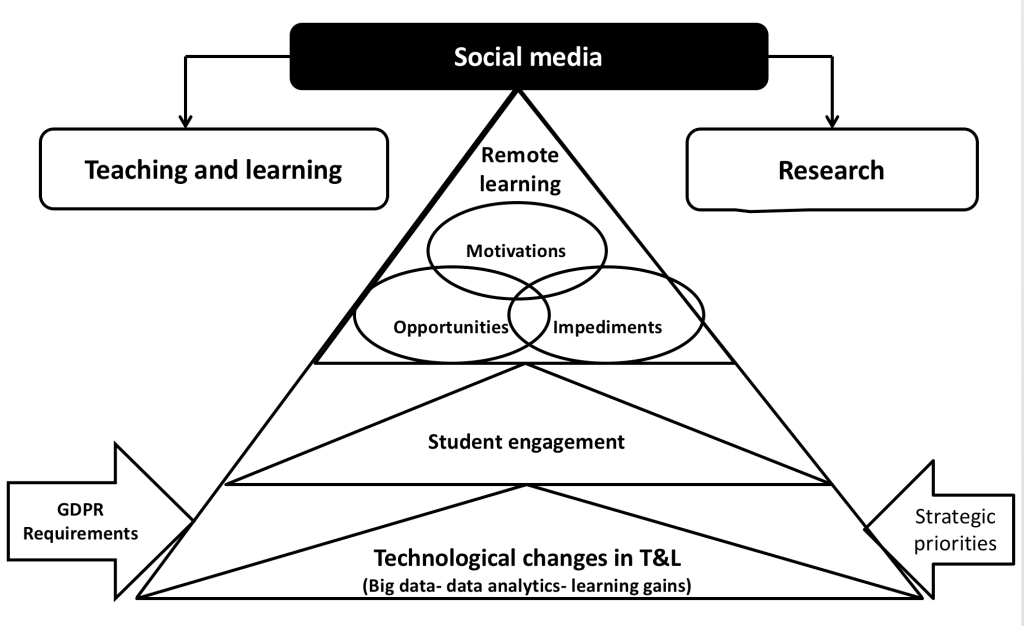
This week’s Host: Dr Mohamed Saeudy

Dr Mohamed Saeudy (@DrSaeudy) is a senior Lecturer in Accounting and Finance and Director of Research Centre for Contemporary Accounting, Finance and Economics (Res CAFE). His research area is sustainable accounting and finance. He helps design many postgraduate courses to develop accounting and finance tools to manage the contemporary challenges of sustainable development such as big data, data analytics, climate change, modern slavery, UN SDGs, human rights and ecological biodiversity. He develops social media tools e.g. blogs to explore how organisations could make business opportunities and profit from considering social and environmental activities. He also developed innovative academic courses on DBA, Green Accounting, Sustainable Finance and Financial Entrepreneurship. These courses covered many contemporary topics ranging from corporate governance to sustainable business strategies and policies. In addition, Dr Saeudy provides professional consultancies for many business organisations in the UK and overseas in the field of sustainable business solutions, entrepreneurial finance, green finance, risk management and virtual business innovation.
Introduction
This session aims to consider how social media could be used to support academic practices during and beyond the Covid-19 conditions. It aims to explore some practical approaches to using Social Media in a satisfying and sustainable way. I am looking forward to exploring future opportunities for using social media beyond the Covid-19 conditions to support the student experience.

Image by Dr Mohamed Saeudy
The power of using social media during and beyond the Covid-19 pandemic
One of the most contemporary topics in the HE sector is to understand the implications of the Covid-19 pandemic for people’s everyday lives. This pandemic created new normal realities for the decision-making of educators, students, customers, managers, shareholders, lenders, suppliers, and employees. A growing range of issues have a bearing on this new world, including human wellbeing, remote learning, value for education, online teaching and increased expectations on HE institutions with regard to student satisfaction, staff wellbeing, and creating effective online communications. In order to address these challenges, many universities are increasingly turning to offer short courses and online blended learning degrees. Often these degrees intend to help academics and students to get more involved with many social media platforms to build up effective online capabilities and conduct their institutional communications.
Challenges and opportunities
In response to the growing recognition that universities must respond to the Covid-19 conditions, a number of social media platforms have been used over the last year to guide and manage student learning at a different level. These include using social media platforms in teaching and learning and supporting student engagement. There are several benefits that could be achieved from using social media in teaching and learning such as exploring the leading edge and contemporary topics and enhancing digital pedagogy. However, there are also some challenges from the risks and toxic side of using social media. Furthermore, the General Data Protection Regulations (GDPR) presented another valid level of challenges that should be considered to control social media communications.
Recommended links:
A quick guide to managing organisational social media accounts
https://markcarrigan.net/2018/05/01/a-quick-guide-to-managing-institutional-social-media-accounts/
Call for Participants – Digital Inequality in Education: Pasts, Presents and Futures
How has the pandemic changed internet use in the UK?
See also:
Balakrishnan, V., 2016. Key determinants for intention to use social media for learning in higher education institutions. Universal Access in the Information Society, Volume 16, pp. 289-301.
Crawford, J. et al., 2020. COVID-19: 20 countries’ higher education intra-period digital pedagogy responses. Journal of Applied Learning and Teaching, 3(1).
Manca, S., 2020. Snapping, pinning, liking, or texting: Investigating social media in higher education beyond Facebook. Internet and Higher Education, , Volume 44.
Niu, L., 2019. Using Facebook for academic purposes: Current literature and directions for future research. Journal of Educational Computing Research, 56(8), pp. 1384-1406.
Purvis, A. J., Rodger, H. M. & Beckingham, S., 2020. Experiences and perspectives of social media in learning and teaching in higher education. International Journal of Educational Research Open, Volume 1.
LTHEchat 207 Questions
- What are the main social media platforms that could be used in teaching and learning in HE? And how do you use them?
- What benefits can academics find in using social media in teaching and learning?
- What are the main roles of using social media in supporting Education for Sustainable Development?
- How can you integrate social media into your curriculum design and planning?
- What are the main limitations and challenges of using social media in teaching and learning?
- How could social media help us to further build up online capabilities and competencies during the Covid-19 pandemic?
Wakelet

You can revisit this TweetChat via its Wakelet





